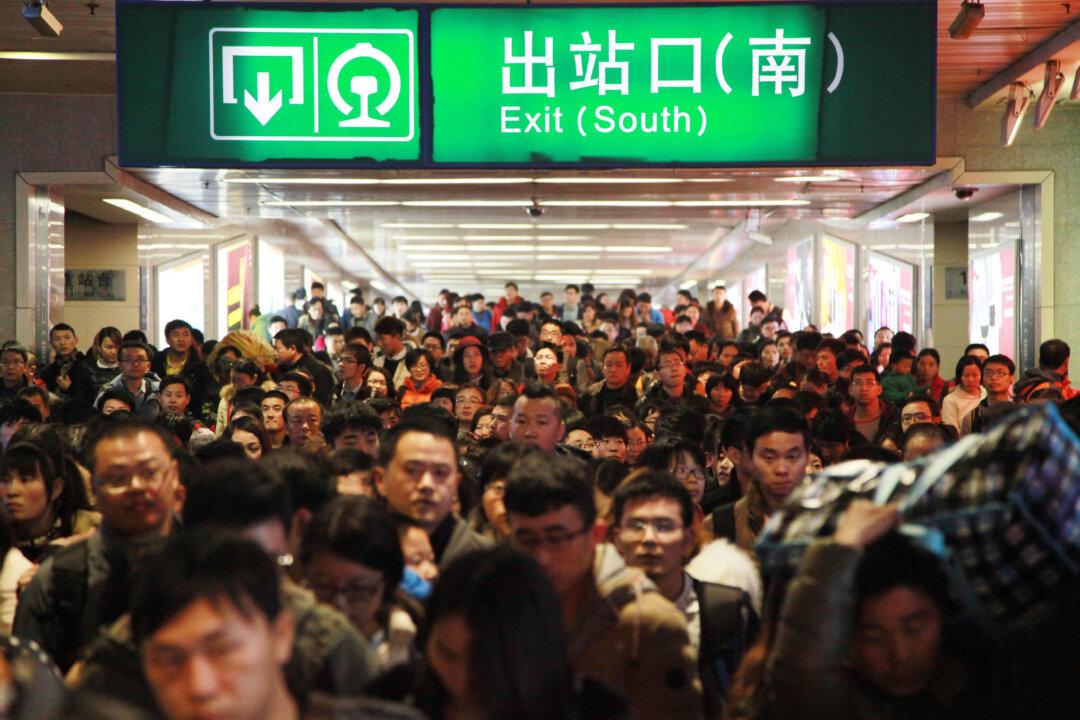If you want to have a functioning market, you have to stick with it in good times and bad. China never really let the market rule in good times, but at least it could pretend it had invented its own brand of state-controlled capitalism.
Now that things are going from bad to worse, China still doesn’t want a 100 percent market. The problem is, it has liberalized the stock market and the exchange rate enough for Mr. Market to get a foot in the door.
While the New Year started badly with a 7 percent stock crash on Jan. 4 and a currency meltdown on Jan. 6, Mr. Market burst through the central planning door on Jan. 7.
Stocks Crash Again
Thursday, Jan. 7, will go down as the shortest trading session in Chinese history—it lasted less than 30 minutes with the Shanghai Composite Index down more than 7 percent at 3,125 at the end of trading. Why so short? Did traders want to take the rest of the day off in preparation for Chinese New Year?
No, they were scared that so-called circuit breakers would halt trading before they could complete all of their sell orders. Ironically, this fear caused a flood of sell orders, which pushed prices so low that the circuits broke and trading shut down for the day.
The circuit breaker kicks in when there’s a 5 percent rise or fall on the main share index and automatically halts trading for 15 minutes; a shift of 7 percent triggers trading to stop for the day.
“If today you have this break, tomorrow everybody will want to run away as soon as possible,” said Yao Yang, professor at the China Center for Economic Research, at a panel discussion in New York on Thursday.
The Chinese stock exchange only installed this system in December after the lessons of the summer of 2015 stock market crash. It thought it would make investors more rational and prevent excessive sell-offs. It did the opposite.
Or in the words of Macquarie research analysts: “Efforts to control the market and enforce an arbitrary pricing floor have had less-than-ideal consequences.” An understatement if there ever was one.
If there is anybody due for an early holiday, it’s David Cui and his analysts at Bank of America. They predicted the Shanghai Composite to drop 27 percent over the year—it’s already halfway there in just the first week of January.






